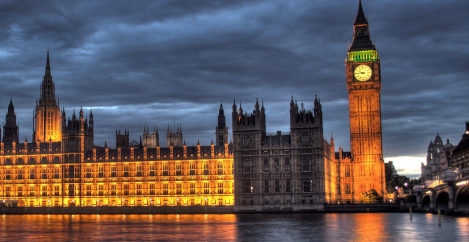December 13, 2018
The scale and complexity of public sector procurement makes a change of direction difficult
 A new report from the Institute for Government claims that the British government spends around £284bn – almost one-third of its total expenditure – with external suppliers. Given its scale, public sector procurement could not easily be abandoned even if politicians wanted, the report concludes. It says that four departments spent more than half of their entire budgets with external suppliers last year. It also finds that the largest suppliers are winning more and more government business.
A new report from the Institute for Government claims that the British government spends around £284bn – almost one-third of its total expenditure – with external suppliers. Given its scale, public sector procurement could not easily be abandoned even if politicians wanted, the report concludes. It says that four departments spent more than half of their entire budgets with external suppliers last year. It also finds that the largest suppliers are winning more and more government business.
According to the report the introduction of compulsory competitive tendering in the 1980s led to a significant expansion of private contracting. Large parts of government began to outsource substantial responsibilities to businesses and charities.
Since then, there has been a broad political consensus that the application of market mechanisms to the work of government and the greater involvement of external providers would unlock savings and improve service performance. Both Conservative and Labour Governments have introduced policies to promote greater use of external suppliers. This has included significantly expanding the role of external suppliers in public services and the use of public–private partnerships, which includes the Private Finance Initiative (PFI). Under the PFI, private companies have designed, built, financed and operated UK infrastructure such as schools and hospitals.
A breakdown in the consensus
But now that consensus is breaking up, according to the authors. While few question whether government should purchase goods such as stationery or IT hardware from private providers, there is an increasingly vigorous public debate about the supply of public services and other functions that were once the preserve of the public sector. The collapse of Carillion, one of the largest government contractors, highlighted some of the weaknesses of the model. It would be wrong for the failure of a company to be mistaken for the failure of the idea; companies fail for many reasons. But the episode revealed questions about the quality of government supervision, whether public services were adequately protected from a failure by a supplier and whether small suppliers of big contractors should carry as much risk as they do.
The industry was keen to suggest that government has driven down the pricing of contracts too far, while others questioned the adequacy of the protection of pensions and jobs for employees who were doing government work. The Labour leadership now argues that the outsourcing project has failed, presenting both ideological and practical objections.
The Institute for Government has already carried out a considerable amount of work on government contracting. It claims that certain conditions have to be met if it is to work well. These include the ease of measuring the value added by the provider, relative policy certainty in the service area and the service not being intrinsic to the nature of government.
The report sets out its goal to provide clarity and a firm basis for the wider discussion. The analysis suggests that:
- procurement is the single biggest component of modern government and it cannot easily be unravelled
- the UK’s procurement spending is not high by international standards
- the proportion of published procurement spending going to strategic suppliers – companies that receive over £100 million in revenue per year from government contracts – has grown over the past five years, yet some of the top strategic suppliers have experienced financial difficulties
- some government departments are beginning to take greater control of aspects of their IT.













